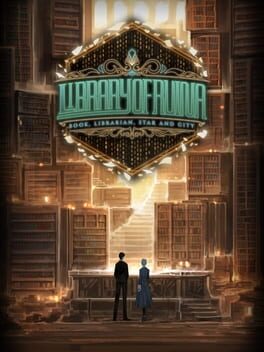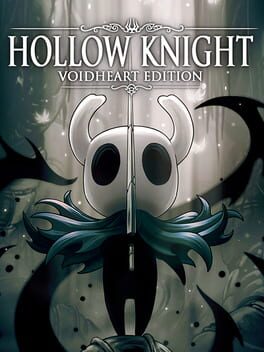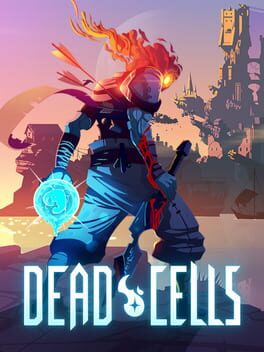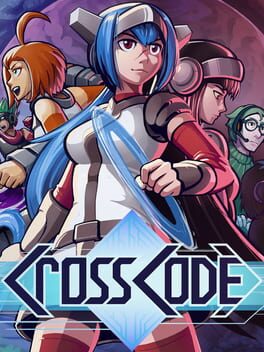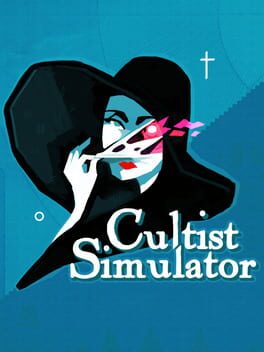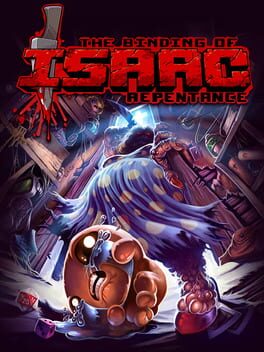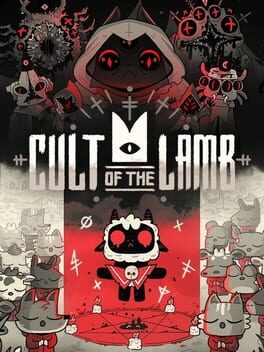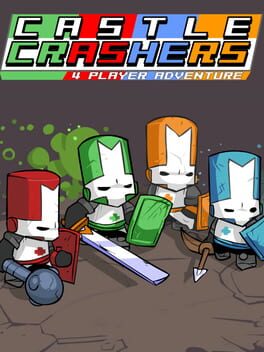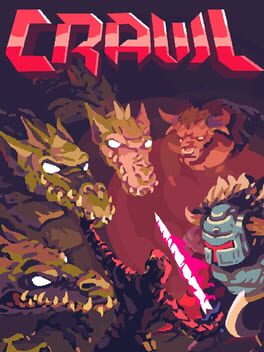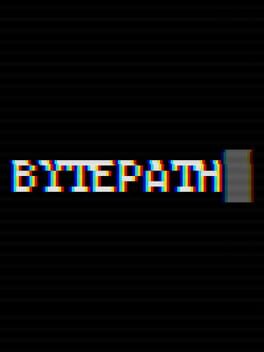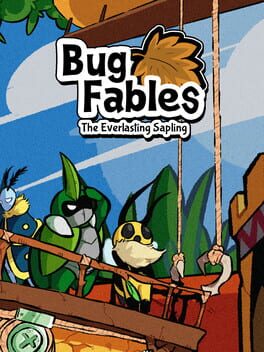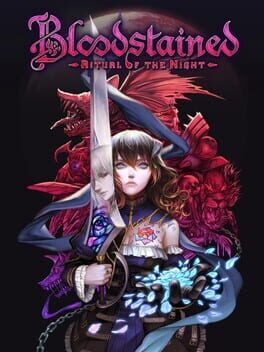nobelsucks
2020
2021
2018
2017
2018
2018
I've played this game since 2012 and still love it.
Here's what I think is really great about Binding of Isaac. This is not meant to be a persuasive essay - it's supposed to be a descriptive one about my experience with the game. I'm also not interested in talking about the virtues or faults of the roguelike genre, however people define that. I think most roguelikes are garbage (as is most of anything) and i don't think that the attributes that make binding of isaac stand out are particularly related to it being a roguelike.
The main thing that I think makes BOI stand out is qualitatively unique experiences. By qualitative uniqueness, I mean - experiences that don't just distinguish themselves from one another via some number or quantity being different. A while back, a meme went around criticizing RPG games for having weapons with a dumb medley of stats like "+15% fire resistance" or "+10% piercing damange". Binding of Isaac is meaningful in that not many of the upgrades are simple "number goes up" and very few of them are into arbitrarily separated damage pools like "fire" or "piercing." The majority of the upgrades you get meaningfully affect how you play the game. You're rarely getting some random stat modifier that you can't feel - you're usually getting a permanent change to the game you're playing, for better or worse. One upgrade might give you a little buddy that blocks damage, but then you have to go catch him in order for him to block damage again. Another upgrade might give you twice as many bullets, but now they're shooting diagonally so now you have to think differently about how you position yourself against various enemies. Another upgrade might create a pentagram that does huge amounts of damage whenever you walk in a circle, so you end up trying to create circles as often as you can.
This level of interest or novelty is exponentially improved by the level of synergy there is across the game. Even when you have an upgrade that simply improves a number, like max health, you're constantly put into situations where that stat can be leveraged in unexpected ways. Health is a particularly easy one to discuss - there's a number of places in the game where max health can be traded for upgrades or improvements. For example, one item in the game allows you to sacrifice your max health in order to make little meat boys that initially protect you, but eventually end up attacking your enemies. As you get later in the game, having a lot of max health can actually be a detriment, since the amount of health you can have total is capped, which means that you won't be able to pick up different types of health. Almost every stat in the game results in meaningful decisions and novel considerations when planning out your run.
This synergy is set up organically, through this series of interconnected stats, but there's also a series of manual synergies that also make the game exciting. A particular grouping of items might result in literal set effects, where you get new upgrades or new stat changes just because you managed to get all the items in the set. Besides this, there are synergies that are natural to expect, but have to have required meaningful thought on the part of the developers. One of the upgrades changes your attack from a bullet to a powerful knife that you throw. Another upgrade makes your bullets orbit around you. Another developer might have simply said "There are just discrete types of weapons and we don't need to think meaningfully about how these should interact". In BOI, you get something much more satisfying - a whirlwind of knives that vaporizes everything within a certain radius of you that organically emerges from the system they establish.
The enemy design also reflects meticulous attention to qualitative differences. One of the things that's delightful about the enemy design is there is no enemy that is just another enemy but slightly different stats. Every single enemy has a different pattern to how they avoid attacks and how they attack you. You end up developing different strategies for dealing with each enemy. When you have to deal with combinations of these enemies, your strategy needs to change in new ways. Maybe you have to deal with one type of enemy that chases you, while you deal with another enemy that's able to attack you at a distance. Combine this with the various playstyles that different runs encourage, and each new combination of enemies and upgrades feel like you're experiencing a new challenge each time.
This novelty is all brought together by the rate at which you learn more about the game and the rate at which the game advances. People have said that the base gameplay of BOI is not very compelling, which I think is 100% true. I think one of the strengths of BOI is that you're almost never playing the same game for very long. The main gameplay loop is a sequence of "Ok, you clearly understand this mechanic - well now here's this new mechanic for you to get used to." You beat the final boss of this run? Well, now here's new levels and new final bosses for you to beat. You're breezing through the initial levels because you've gotten good at this game? Well, now here's a sacrifice room where you can sacrifice health in order to get bonuses.
It does this in a lot of different ways. The most obvious way is that it does this with the literal number of options - you unlock more items, more stages, more characters. It also does this in skill. By the time you're on your 50th run, you're basically not going to ever be getting hit by bosses that would straight up kill you on your first few runs. However, my favorite way that it does this is by building knowledge. Every run that you do is strongly based on the information you have from previous runs. Items never tell you what they do before you pick them up and, even when you do pick them up, there's a good chance you'll get a vague description like "One with the Shadows". This means that your runs are heavily predicated by your ability to figure out what different pickups do and your ability to remember what they do later on. This also ties into that meaningfully significant upgrade thing I mentioned before - if your upgrades are dumb garbage like "+15% piecing damage", there's no way for players to learn what your upgrades do!
This isn't only true of upgrades - it's true of the whole game. The more you play the game, the more you realize there are details that you could have been exploiting the whole time. One example is how there are rocks that are tinted that give you special rewards when destroyed. When I played the game, I didn't find out about this until hours later when I got an upgrade that said "Tinted rocks are more obvious". As you play the game more, you slowly learn things like, the rules for when and how hidden rooms appear, how and where to get secret items, ways to unlock hidden bosses. Each new run doesn't just have the novelty and excitement of playing the game in a totally new way. It also has the excitement of making a realization that might totally change how you play the game in the future.
The game also changes with regard to how far you get. The changes are slow, but deeply meaningful. A run of someone who's put a 500 hours into the game is going to be almost unrecognizable to someone who's just started playing the game and that adds to how fresh the game continues to feel. To some degree, it's like they fit 5 sequels into one game, and you're just slowly moving from sequel to sequel. I legitimately think that there is more of a difference between the BOI 0 hours in, 100 hours in and 200 hours in, than there is between tons of games and their sequels,
Now, all of this stuff is great, but I cannot stress enough that this stuff is also extremely well fine tuned. Despite the complete chaos inherent in the upgrades i might end up with, or the resources that I might get, the running average of how far i get across each run is on a very consistent upward slope. I almost never feel like I'm just beating my head against the wall with how difficult the game is and I am consistently surprised by how regularly I am rewarded with sticking through on a run that I originally think is fucked from the beginning. It's not like Rogue, where the majority of runs end with you dying in 5 min. Almost every run ends with me getting meaningfully close to beating a level or boss that i've never beaten before, or with me overcoming some kind of challenge that I haven't been able to do thus far. I legitimately think that they've achieved a more engaging level/balance of challenge in Binding of Isaac than I've experienced in a majority of games with handcrafted levels.
This fine tuning is also very evident in the rate at which you learn new things and try out new upgrades. I almost never have a run that feels like "Oh, I'm basically just doing the same thing over again". Every new run legitimately has me wondering, "Huh, I wonder what the game experience will be like this time. Do I need to develop new skills to make this work? Is this going to be good enough to get further than I did last time"?
All of these things come together to being very good for people who enjoy getting good at systems that are meaningfully unpredictable (I know people might say that this is a primary characteristic of roguelikes, which i disagree with but that's a separate convo). I think a lot of people aren't going to like this game because they like their gaming experiences to be well-constrained and predictable and that's fine! The things that are good about this game will never be enjoyable to those people.
Here's what I think is really great about Binding of Isaac. This is not meant to be a persuasive essay - it's supposed to be a descriptive one about my experience with the game. I'm also not interested in talking about the virtues or faults of the roguelike genre, however people define that. I think most roguelikes are garbage (as is most of anything) and i don't think that the attributes that make binding of isaac stand out are particularly related to it being a roguelike.
The main thing that I think makes BOI stand out is qualitatively unique experiences. By qualitative uniqueness, I mean - experiences that don't just distinguish themselves from one another via some number or quantity being different. A while back, a meme went around criticizing RPG games for having weapons with a dumb medley of stats like "+15% fire resistance" or "+10% piercing damange". Binding of Isaac is meaningful in that not many of the upgrades are simple "number goes up" and very few of them are into arbitrarily separated damage pools like "fire" or "piercing." The majority of the upgrades you get meaningfully affect how you play the game. You're rarely getting some random stat modifier that you can't feel - you're usually getting a permanent change to the game you're playing, for better or worse. One upgrade might give you a little buddy that blocks damage, but then you have to go catch him in order for him to block damage again. Another upgrade might give you twice as many bullets, but now they're shooting diagonally so now you have to think differently about how you position yourself against various enemies. Another upgrade might create a pentagram that does huge amounts of damage whenever you walk in a circle, so you end up trying to create circles as often as you can.
This level of interest or novelty is exponentially improved by the level of synergy there is across the game. Even when you have an upgrade that simply improves a number, like max health, you're constantly put into situations where that stat can be leveraged in unexpected ways. Health is a particularly easy one to discuss - there's a number of places in the game where max health can be traded for upgrades or improvements. For example, one item in the game allows you to sacrifice your max health in order to make little meat boys that initially protect you, but eventually end up attacking your enemies. As you get later in the game, having a lot of max health can actually be a detriment, since the amount of health you can have total is capped, which means that you won't be able to pick up different types of health. Almost every stat in the game results in meaningful decisions and novel considerations when planning out your run.
This synergy is set up organically, through this series of interconnected stats, but there's also a series of manual synergies that also make the game exciting. A particular grouping of items might result in literal set effects, where you get new upgrades or new stat changes just because you managed to get all the items in the set. Besides this, there are synergies that are natural to expect, but have to have required meaningful thought on the part of the developers. One of the upgrades changes your attack from a bullet to a powerful knife that you throw. Another upgrade makes your bullets orbit around you. Another developer might have simply said "There are just discrete types of weapons and we don't need to think meaningfully about how these should interact". In BOI, you get something much more satisfying - a whirlwind of knives that vaporizes everything within a certain radius of you that organically emerges from the system they establish.
The enemy design also reflects meticulous attention to qualitative differences. One of the things that's delightful about the enemy design is there is no enemy that is just another enemy but slightly different stats. Every single enemy has a different pattern to how they avoid attacks and how they attack you. You end up developing different strategies for dealing with each enemy. When you have to deal with combinations of these enemies, your strategy needs to change in new ways. Maybe you have to deal with one type of enemy that chases you, while you deal with another enemy that's able to attack you at a distance. Combine this with the various playstyles that different runs encourage, and each new combination of enemies and upgrades feel like you're experiencing a new challenge each time.
This novelty is all brought together by the rate at which you learn more about the game and the rate at which the game advances. People have said that the base gameplay of BOI is not very compelling, which I think is 100% true. I think one of the strengths of BOI is that you're almost never playing the same game for very long. The main gameplay loop is a sequence of "Ok, you clearly understand this mechanic - well now here's this new mechanic for you to get used to." You beat the final boss of this run? Well, now here's new levels and new final bosses for you to beat. You're breezing through the initial levels because you've gotten good at this game? Well, now here's a sacrifice room where you can sacrifice health in order to get bonuses.
It does this in a lot of different ways. The most obvious way is that it does this with the literal number of options - you unlock more items, more stages, more characters. It also does this in skill. By the time you're on your 50th run, you're basically not going to ever be getting hit by bosses that would straight up kill you on your first few runs. However, my favorite way that it does this is by building knowledge. Every run that you do is strongly based on the information you have from previous runs. Items never tell you what they do before you pick them up and, even when you do pick them up, there's a good chance you'll get a vague description like "One with the Shadows". This means that your runs are heavily predicated by your ability to figure out what different pickups do and your ability to remember what they do later on. This also ties into that meaningfully significant upgrade thing I mentioned before - if your upgrades are dumb garbage like "+15% piecing damage", there's no way for players to learn what your upgrades do!
This isn't only true of upgrades - it's true of the whole game. The more you play the game, the more you realize there are details that you could have been exploiting the whole time. One example is how there are rocks that are tinted that give you special rewards when destroyed. When I played the game, I didn't find out about this until hours later when I got an upgrade that said "Tinted rocks are more obvious". As you play the game more, you slowly learn things like, the rules for when and how hidden rooms appear, how and where to get secret items, ways to unlock hidden bosses. Each new run doesn't just have the novelty and excitement of playing the game in a totally new way. It also has the excitement of making a realization that might totally change how you play the game in the future.
The game also changes with regard to how far you get. The changes are slow, but deeply meaningful. A run of someone who's put a 500 hours into the game is going to be almost unrecognizable to someone who's just started playing the game and that adds to how fresh the game continues to feel. To some degree, it's like they fit 5 sequels into one game, and you're just slowly moving from sequel to sequel. I legitimately think that there is more of a difference between the BOI 0 hours in, 100 hours in and 200 hours in, than there is between tons of games and their sequels,
Now, all of this stuff is great, but I cannot stress enough that this stuff is also extremely well fine tuned. Despite the complete chaos inherent in the upgrades i might end up with, or the resources that I might get, the running average of how far i get across each run is on a very consistent upward slope. I almost never feel like I'm just beating my head against the wall with how difficult the game is and I am consistently surprised by how regularly I am rewarded with sticking through on a run that I originally think is fucked from the beginning. It's not like Rogue, where the majority of runs end with you dying in 5 min. Almost every run ends with me getting meaningfully close to beating a level or boss that i've never beaten before, or with me overcoming some kind of challenge that I haven't been able to do thus far. I legitimately think that they've achieved a more engaging level/balance of challenge in Binding of Isaac than I've experienced in a majority of games with handcrafted levels.
This fine tuning is also very evident in the rate at which you learn new things and try out new upgrades. I almost never have a run that feels like "Oh, I'm basically just doing the same thing over again". Every new run legitimately has me wondering, "Huh, I wonder what the game experience will be like this time. Do I need to develop new skills to make this work? Is this going to be good enough to get further than I did last time"?
All of these things come together to being very good for people who enjoy getting good at systems that are meaningfully unpredictable (I know people might say that this is a primary characteristic of roguelikes, which i disagree with but that's a separate convo). I think a lot of people aren't going to like this game because they like their gaming experiences to be well-constrained and predictable and that's fine! The things that are good about this game will never be enjoyable to those people.
2022
2008
2017
2018
2015

